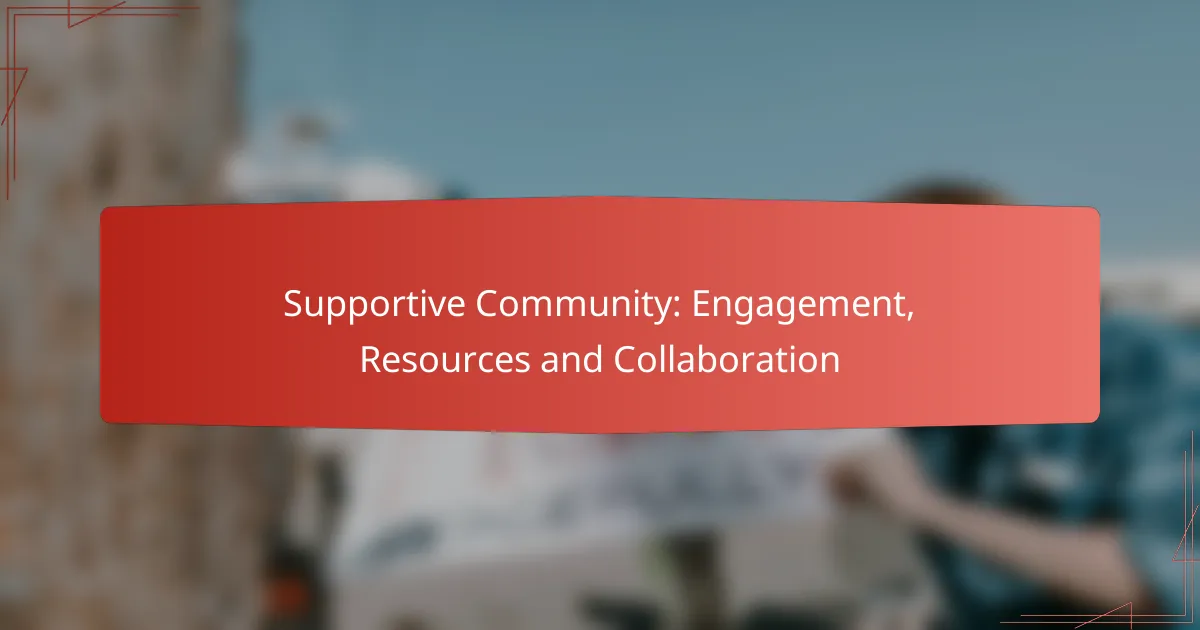Networking benefits are pivotal in today’s professional landscape, particularly through tournaments that connect individuals with peers and industry leaders. These events not only enhance visibility but also create pathways for collaboration, mentorship, and career advancement. By engaging in networking opportunities, participants can unlock valuable insights and resources that significantly contribute to their personal and professional growth.

What are the benefits of networking tournaments?
Networking tournaments provide significant advantages by connecting participants with peers and industry leaders, enhancing visibility, and creating opportunities for collaboration. These events foster relationships that can lead to career advancements and sponsorship opportunities.
Enhanced visibility for participants
Networking tournaments increase participants’ visibility within their industry, allowing them to showcase their skills and talents to a broader audience. This exposure can lead to recognition from potential employers or collaborators.
To maximize visibility, participants should actively engage during the tournament, share their experiences on social media, and connect with other attendees. A strong online presence can further amplify their reach beyond the event.
Opportunities for skill development
Participants in networking tournaments often have access to workshops, seminars, or mentorship sessions that focus on skill enhancement. These opportunities allow individuals to learn from experts and improve their competencies in a competitive environment.
To benefit from these sessions, participants should come prepared with specific goals and questions. Engaging actively in discussions can lead to deeper insights and practical knowledge applicable to their careers.
Access to industry leaders
Networking tournaments attract industry leaders who share their insights and experiences, providing participants with valuable knowledge and guidance. This access can open doors to mentorship and collaboration opportunities.
To make the most of these interactions, participants should prepare thoughtful questions and follow up with leaders post-event. Building rapport can lead to ongoing relationships that benefit their professional journey.
Potential for sponsorship deals
Networking tournaments can serve as a platform for participants to attract sponsorship deals, especially if they demonstrate exceptional skills or innovative ideas. Companies often seek to support promising talent in exchange for visibility and brand alignment.
Participants should be proactive in discussing their projects and aspirations with potential sponsors during the event. Having a clear value proposition can significantly increase the chances of securing sponsorships.
Building lasting professional relationships
One of the key benefits of networking tournaments is the opportunity to build lasting professional relationships. These connections can lead to future collaborations, job offers, or partnerships that enhance career growth.
To cultivate these relationships, participants should follow up with contacts after the event, maintain regular communication, and offer assistance when possible. A strong professional network can provide support and opportunities throughout their careers.

How do networking connections impact career growth?
Networking connections significantly enhance career growth by opening doors to new job opportunities, mentorship, and collaborative projects. Building relationships within your industry can lead to valuable insights and resources that accelerate professional development.
Increased job opportunities
Networking can lead to job opportunities that may not be advertised publicly. Many positions are filled through referrals, making connections essential for job seekers. Engaging with industry professionals at events or online can increase your visibility and likelihood of being recommended for roles.
Consider attending local networking events, industry conferences, or online webinars to meet potential employers and peers. Aim to connect with individuals who share similar career goals or interests, as they may provide leads on job openings or insider information about companies.
Access to mentorship programs
Networking can provide access to mentorship programs that facilitate personal and professional growth. Mentors offer guidance, share experiences, and help navigate career challenges, which can be invaluable for those starting out or looking to advance.
Seek out mentors through professional associations or networking events. Establishing a relationship with a mentor can lead to tailored advice and opportunities that align with your career aspirations. Be proactive in reaching out and expressing your interest in learning from their expertise.
Collaboration on projects
Networking fosters collaboration on projects, allowing professionals to combine skills and resources for mutual benefit. Collaborative efforts can lead to innovative solutions and enhance your portfolio, making you more attractive to employers.
Look for opportunities to collaborate by joining industry-specific groups or forums where professionals share project ideas. Engaging in team projects can also help you develop new skills and expand your professional network, creating a cycle of growth and opportunity.

What types of networking opportunities exist?
Networking opportunities come in various forms, each offering unique benefits for personal and professional growth. Engaging in these activities can lead to valuable connections, insights, and potential collaborations.
Industry conferences
Industry conferences are large gatherings where professionals from specific sectors come together to share knowledge, showcase innovations, and network. These events often feature keynote speakers, panel discussions, and workshops that provide insights into current trends and challenges.
Attending conferences can be a significant investment, typically costing hundreds to thousands of dollars, depending on the event’s scale and location. Consider factors like travel expenses and accommodation when budgeting for these opportunities.
To maximize your experience, prepare in advance by researching attendees and speakers, and set specific goals for what you want to achieve, such as meeting potential collaborators or learning about new technologies.
Online networking platforms
Online networking platforms, such as LinkedIn, provide a virtual space for professionals to connect, share content, and engage in discussions. These platforms allow users to build their professional profiles, showcase their skills, and expand their networks without geographical limitations.
When using online platforms, actively participate in groups related to your industry and share valuable content to enhance your visibility. Regularly updating your profile and engaging with others can lead to new opportunities and connections.
Be cautious of oversharing personal information and ensure that your online presence aligns with your professional image. Building a strong network online can take time, so be patient and consistent in your efforts.
Local meetups and workshops
Local meetups and workshops are smaller, community-driven events that focus on specific topics or skills. These gatherings provide an informal setting for networking, learning, and sharing experiences with others in your area.
Participating in these events can be cost-effective, often requiring only a small fee or being completely free. They offer a chance to connect with like-minded individuals and industry experts in a more personal environment.
To find local meetups, check platforms like Meetup.com or community bulletin boards. When attending, come prepared with questions and be open to sharing your own experiences to foster meaningful connections.

What are the best practices for effective networking?
Effective networking involves strategic relationship-building and communication to create valuable connections. Focus on authenticity, consistency, and follow-up to maximize opportunities and foster lasting professional relationships.
Building a strong personal brand
A strong personal brand clearly communicates who you are and what you stand for. Start by identifying your unique skills and values, then consistently showcase them through your online presence and interactions.
Consider creating a professional website or portfolio that highlights your achievements and expertise. Use platforms like LinkedIn to share insights and engage with your industry, reinforcing your brand identity.
Utilizing social media effectively
Social media is a powerful tool for networking, allowing you to connect with industry peers and potential collaborators. Choose platforms that align with your professional goals, such as LinkedIn for business connections or Twitter for industry discussions.
Engage actively by sharing relevant content, commenting on posts, and participating in discussions. This visibility can attract opportunities and enhance your professional reputation.
Following up with contacts
Following up is crucial for maintaining and strengthening your network. After meeting someone, send a personalized message within a few days to express appreciation and reinforce the connection.
Consider scheduling regular check-ins, whether through emails or social media messages, to stay updated on each other’s progress. This ongoing communication can lead to new opportunities and collaborations down the line.

How can networking enhance business opportunities?
Networking can significantly enhance business opportunities by connecting individuals and organizations, facilitating relationships that lead to potential clients, partnerships, and valuable market insights. Engaging with others in your industry can open doors to collaborations and resources that might otherwise remain inaccessible.
Identifying potential clients
Networking allows businesses to identify potential clients through direct interactions and referrals. Attending industry events, conferences, or local meetups can help you meet individuals who may benefit from your products or services.
Utilizing platforms like LinkedIn can also aid in discovering leads. By joining relevant groups and participating in discussions, you can position yourself as a knowledgeable resource, attracting potential clients who are seeking expertise.
Finding strategic partners
Building a network can lead to finding strategic partners who complement your business. Collaborating with other companies can enhance your offerings and expand your reach. Look for partners whose strengths align with your weaknesses to create mutually beneficial relationships.
Consider co-hosting events or joint marketing campaigns as a way to leverage each other’s networks. This approach can increase visibility and credibility for both parties, leading to new opportunities and shared resources.
Gaining insights into market trends
Networking provides access to valuable insights into market trends through conversations with peers and industry experts. Engaging in discussions can reveal emerging trends, consumer preferences, and competitive strategies that can inform your business decisions.
Participating in forums or attending workshops can also enhance your understanding of the market landscape. Regularly connecting with others in your field helps you stay updated on changes and innovations, allowing you to adapt your strategies accordingly.



